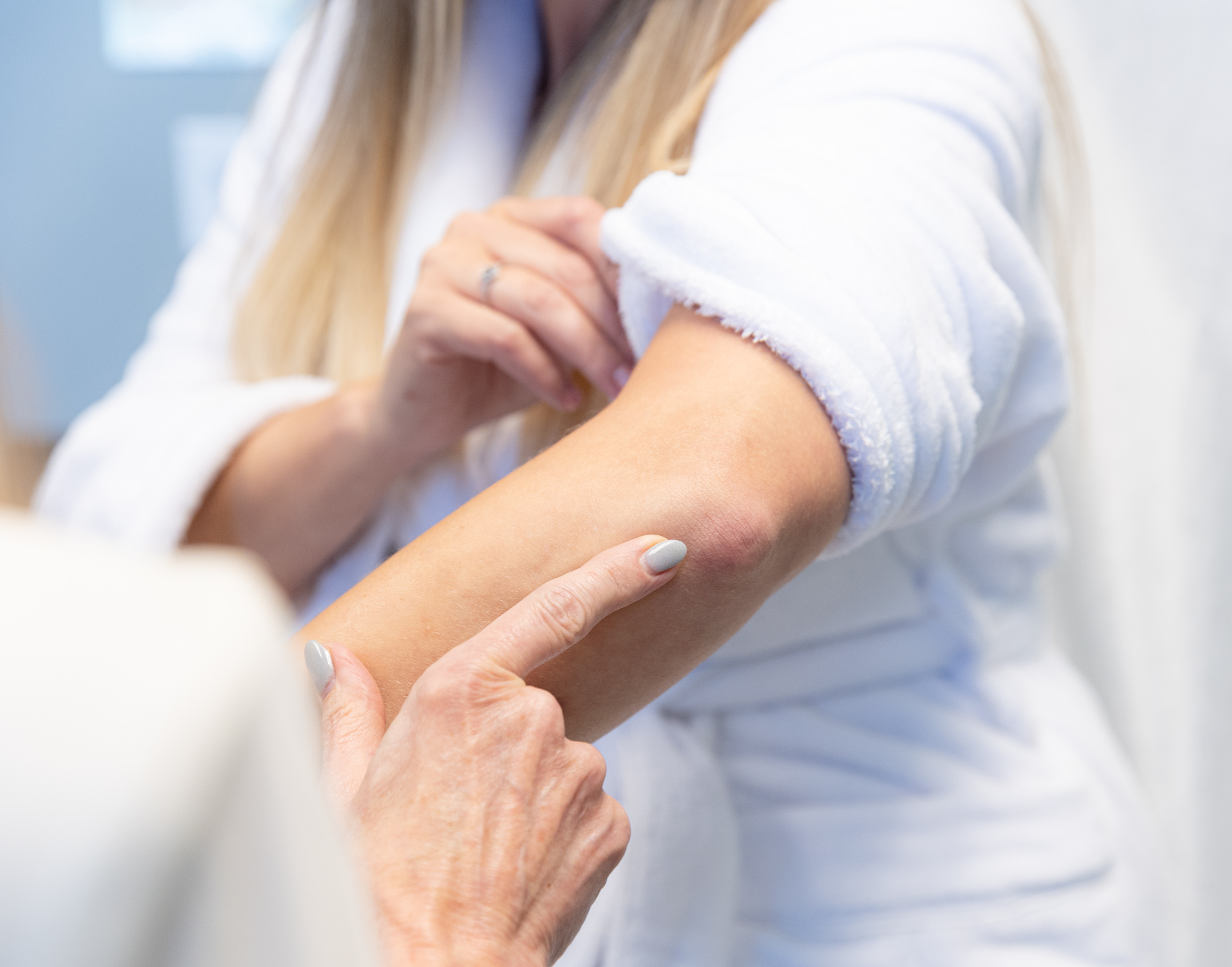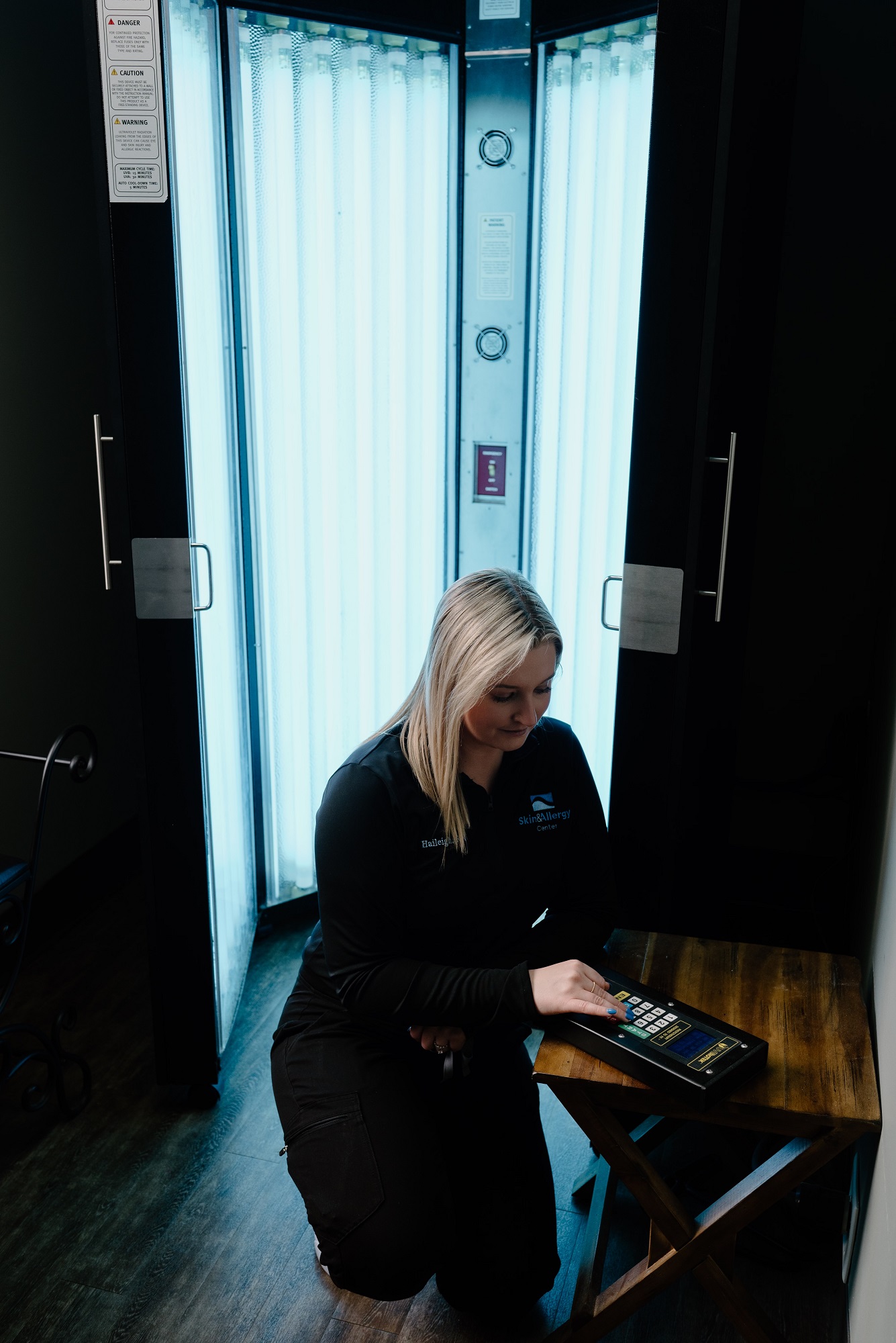Spring Hill
Murfreesboro
Mohs Surgical CENTER
Columbia
Lawrenceburg

Category
Dermatology
What Psoriasis Treatment Addresses
Excessive Skin Cell Growth
Scaley Skin
Psoriasis Blisters
Downtime
None
Treatments Needed
Varies from Patient to Patient
Results of Psoriasis Treatment
Varies from Patient to Patient
Psoriasis can be a difficult skin condition to manage, but the Skin & Allergy Center in Nashville is here to help. Our team of dermatologists and medical professionals are well-versed in the latest psoriasis treatment and management options and can help you find a plan that works for you. With our compassionate care and expertise, we strive to help reduce your pain and discomfort!
Psoriasis Treatment Benefits
Clearer Complexion
Increased Comfort & Confidence
Long-Term Solutions
Expert Guidance Throughout Treatment
Psoriasis is a chronic autoimmune disease that affects the skin, causing red, scaly patches that can be itchy and painful. At Skin & Allergy Center, several of our dermatologists specialize in psoriasis treatment and can create a personalized treatment plan that works for each individual patient. Treatment options include topical creams, oral medications, and biologic injections.
These treatments can help reduce inflammation, slow skin cell growth, and alleviate symptoms. With proper treatment and management, patients with psoriasis can experience long-term relief and improved quality of life.



Skin & Allergy Center sets the bar for skin care in the Nashville metro area. We prioritize patient-centered care and utilize the latest technology and advanced treatments to provide exceptional service for a wide range of medical and cosmetic skin conditions, allergies, and asthma.
With a focus on compassion, innovation, and quality care, you can depend on the Skin & Allergy Center team to provide you with the specialized treatment you need to look better, feel better, and live better.
There are several types of psoriasis, including plaque psoriasis, guttate psoriasis, inverse psoriasis, pustular psoriasis, and erythrodermic psoriasis. The most common type is plaque psoriasis, which is characterized by raised, inflamed patches of skin covered with silvery-white scales.
Treatment for psoriasis will depend on the type and severity of the condition. Mild cases of psoriasis can often be treated with topical medications, while more severe cases may require oral or injectable medications. If you’re unsure of the severity of your skin, contact the Skin & Allergy Center today!
Yes, stress can be a trigger for psoriasis flare-ups or worsen existing symptoms. While stress management techniques may not cure psoriasis, they can help reduce the severity and frequency of flare-ups.
Some stress management techniques that may be helpful for people with psoriasis include exercise, meditation, deep breathing, and yoga.
While there are no natural remedies that have been proven to cure psoriasis, some natural treatments may be helpful in managing symptoms. For example, aloe vera gel, fish oil supplements, and Oregon grape may help reduce inflammation and itching associated with psoriasis.
However, it’s important to note that natural remedies may not be effective for everyone and should not replace medical treatment, professional monitoring, and regular skin checks.
While there is no known cure for psoriasis, there are many treatment options available that can effectively manage symptoms and improve quality of life. These treatments may include topical medications, oral or injectable medications, light therapy, and lifestyle changes.
It’s important for people with psoriasis to work with a dermatologist or healthcare provider, like the team here at Skin & Allergy Center, to develop a treatment plan that is tailored to their individual needs and preferences.
